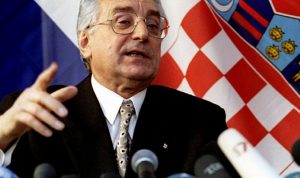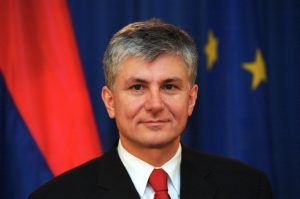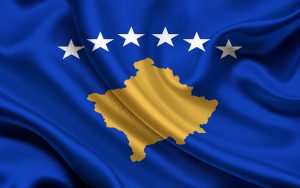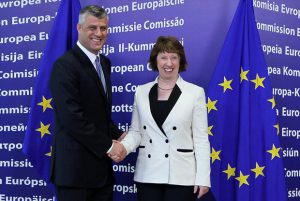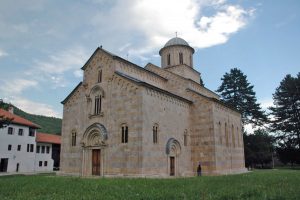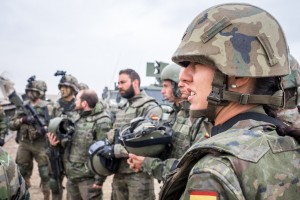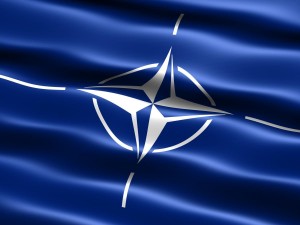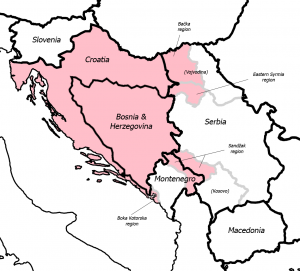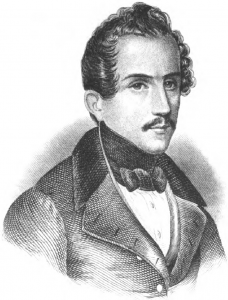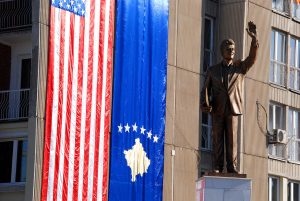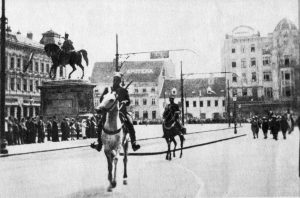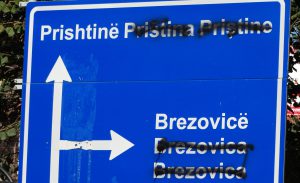Where is the Republican Congress? Many in that body are today whining that Clinton moved unilaterally into...
Belgrade
A Yugoslav Communist Major Franjo Tuđman (left) with his Croatian compatriot Communist Captain Joža Horvat (right) as...
The third congress of AVNOJ (AVNOJ – Antifiascist Council of People’s Liberation of Yugoslavia) in Belgrade, on...
That a Serb Question in Yugoslavia was really acute problem became clear on April 24th, 1987 [...]
The quest for a unipolar empire set in motion a series of wars and ethnic conflicts [...]
Klopka za generala is a failed attempt to falsify history and to create a national foundation based...
The NATO missile assault killed 16 journalists and employees, yet there was no international outcry comparable to...
A new 1991 year started with a fear of the escalation of the political conflicts into a...
Clearly, the process of creation of Albanian nationality was not yet completed at the end of the...
The core of the First Balkan Alliance was Serbia and the pivotal advocate of it was her...
It is a very fact that the discussions about direct responsibility for the outbreak of the Great...
Many foreign political scientists argue that the political (and electoral) system in Serbia during the process of...
One can ask why A. Vučić opted for the extraordinary parliamentary elections if it is known that...
It was true that the KLA realized very well that the more Albanian civilians were killed as...
The NATO war on Yugoslavia which culminated in the 78-days bombing of historic cities and infrastructures –...
In times of crisis, the EU proclaims that Kosovo is, in fact, Serbia’s responsibility. This unprincipled nature...
It was NATO’s first out-of-area operation, against its own Treaty and without a UN mandate. On March...
Princip triggering the war implies he pressed some kind of a button that caused the war to...
Article is published as: “The Serbian Patriarchate of Peć in the Ottoman Empire: The First Phase (1557−94)”,...
Authentic photos from Kosovo - a region protected and sponsored by the NATO. This material was never...
March 24th, 1999 - The beginning of NATO aggression on Serbia [...]
It was true that the KLA realized very well that the more Albanian civilians were killed as...
Since January 1913 until June 1914 (i.e. before the Sarajevo assassination ) he formally demanded 25...
In the Yugoslav historiography (1918–1941; 1945–1991) Lj. Gaj’s decision to choose a Illyrian name and the štokavian...
Lj. Gaj and his followers required that the Croatian national language has to be accepted as an...
Kurti’s Election Means a Stronger Push for “Greater Albania” and Protection for Terrorists in Kosovo


Kurti’s Election Means a Stronger Push for “Greater Albania” and Protection for Terrorists in Kosovo
Kurti does not recognize the flag and anthem of Kosovo, as well as the Kosovar national identity....
In short, former Russian deputy military attaché in Serbia, Georgy Kleban, stands accused of suborning a Serbian...
No serious expert would say that self-proclaimed Kosovo is financially viable without the support of the West....
Catalan independence can be good or bad - it depends on the Catalan people to make it...
When Yugoslavia collapsed at the start of 1990s, there was nothing predetermined about what followed. One possibility...
Twenty years ago, President Bill Clinton commenced bombing Serbia in the name of human rights, justice, and...
Turning now to Crimea, Kosovo and Catalonia, the Crimean referendum, long on its Russian population’s minds, became...
The end of WWI in November 1918 as a consequence of the military collapse of the Central...
Every now and then we are being bombed by some terms in order to get used to...


